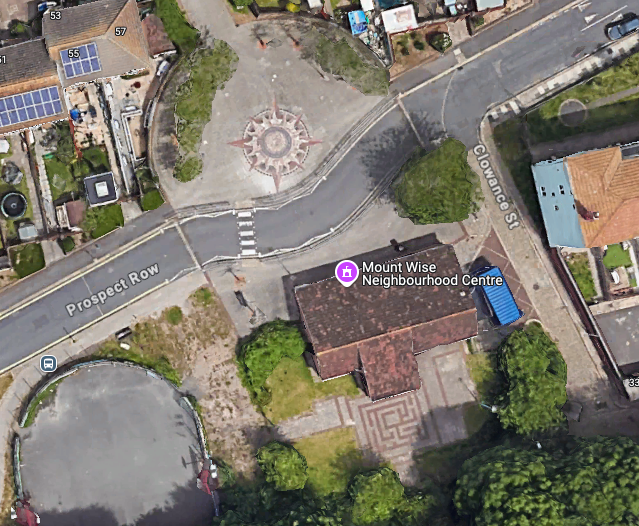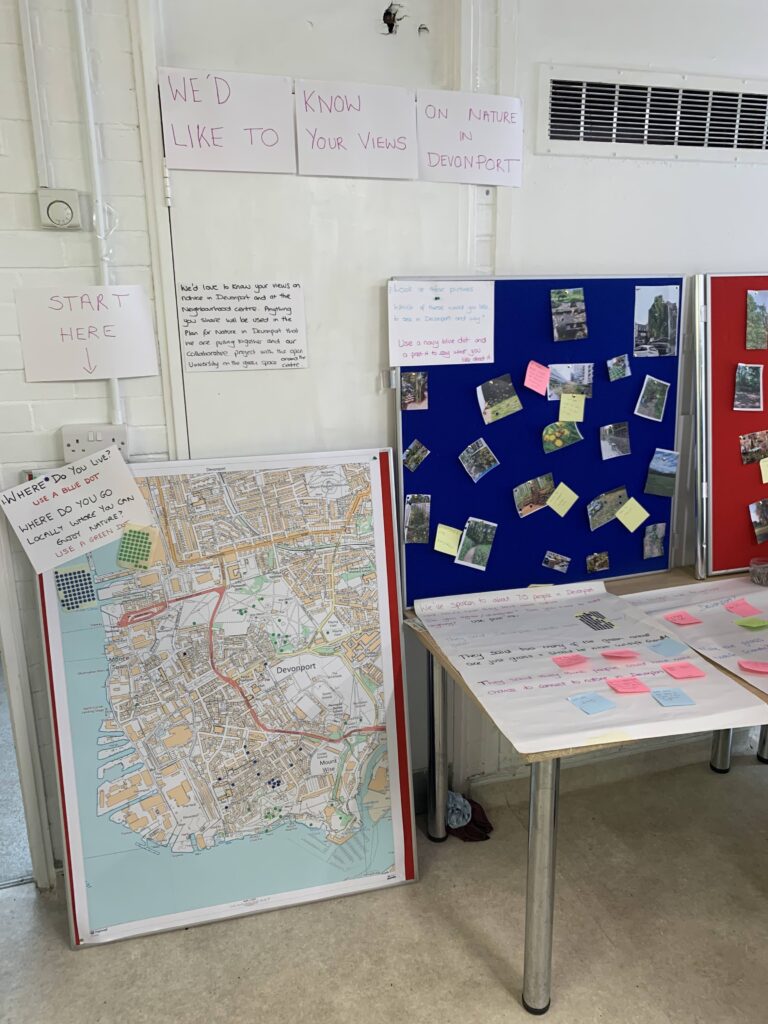Radical Roots is a collaborative research project exploring inequalities of opportunity, delivered in partnership between The Open University and our community partner, Zebra Collective.
An interdisciplinary journey, so far
Building on a career of design, innovation, and collaboration in practice across various sectors, I am delighted to move into an academic space. I will lead this research project as an AHRC Innovation Scholar in Design, and also join the Design Group at the Open University (OU) as a visiting fellow for a couple of years.
My journey to this opportunity has not been linear and has seen me moving between and bridging sectors. I trained and practiced as an urban designer before working with a small national charity, designing and delivering hands-on design skills advice and training to communities leading change and to professionals working alongside communities – and collaborating with researchers from the Open University on a range of co-design projects. I administered affordable housing grant to local authorities and housing associations while working for the Mayor of London where I also launched a community led housing hub for London, contributed to policy and design quality work, and worked with government departments progressing the development of surplus land. More recently in health innovation I led work with NHS England to develop a national approach to managing long term lung health conditions at home, as well as supporting the spread of community-based pain cafes across the Southwest of England. I also sit on the Board of a housing association where I focus on quality of services, development of homes, and improvement more broadly.
About the research project
The project Radical Roots aims to co-create place-based approaches to increase the real opportunities that citizens and marginalised groups have to imagine and pursue meaningful change for themselves and their local communities.
The work will focus on “inequalities of opportunities” learning from the case of Zebra Collective and their community development work in Devonport, Plymouth, UK, including through the development of Mount Wise Neighbourhood Centre and adjacent outdoor, green, and public spaces. More specifically, the project seeks to combine Zebra’s expertise in community development work with insights from behavioural science and the Open University’s work in capability-based design approaches.
The aim of this project is to explore and develop place-based design approaches that can enable local people to collectively imagine and create a vision for their place. Through this they can uncover and build on their own strengths and reconnect with their agency to reduce the impact of inequalities.
The project also aims to increase knowledge exchange and partnership working between academia and practice in the context of place-making.
A collaborative partnership
This partnership project has grown from existing relations and shared interests, including with longstanding collaborators Prof Katerina Alexiou and Prof Theodore Zamenopoulos who are now my advisors at The OU, and more recently, but still with several years of connection, with Marc Gardiner and Debbie Freeman of Zebra Collective, the project’s community partner.
Zebra Collective has been rooted for over 20 years within their community of Devonport in Plymouth, UK. Zebra support people to exercise their agency through work in the community, delivering training, convening, and other practices that reaches across Plymouth, the Southwest of England, and beyond. Their work is guided by six principles:
- Inclusive
- Strengths-based
- Trauma-informed
- Social & environmental justice
- Reflective & reflexive; humility
- (Zebra’s community work only) Embedded in the communities in which we live and/or work
As a trusted partner in the city, Zebra were able to take on an 11-year lease from Plymouth City Council for the Mount Wise Neighbourhood Centre (MWNC) in Devonport in April 2024. The project Radical Roots contributes to work led by Zebra Collective to activate and invigorate the Neighbourhood Centre as a place and space for the community of Mount Wise through the development of community-led proposals for two related spaces:
- Mount Wise Neighbourhood Centre outdoor spaces around the building and the garden to the rear; and
- Clowance Street public space, a semi-circular public space across the road from MWNC that includes a semi-circle of trees and a compass mosaic. The space is owned by Plymouth Community Homes and identified in a Plymouth City Council commissioned Devonport green spaces report.

Image: Screenshot from Google Maps of the Mount Wise Neighbourhood Centre and adjacent spaces (saved 24/6/25)
The joint project will deliver a co-design process enabling the community to imagine and articulate hopes and dreams for these spaces and to translate them into tangible design briefs and proposals. The project will focus on community, nature and climate change as elements in the potential transformation of the spaces.
This work links with and furthers Zebra Collective’s engagement and leadership in nature-connectedness projects and activities in Devonport. Previous and on-going activities include developing a Nature Neighbourhoods plan for Devonport, contributing to the Green Minds and Green Communities projects run by Plymouth City Council, founding and running the Green Devonport Partnership, and delivery of ongoing activities from MWNC such as ‘Grow – Cook – Share’, and Youth Club involvement in developing the garden space at the centre.
 Image: Engagement material used by Zebra Collective as part of their work to develop a Nature Neighbourhoods Plan for Devonport in summer 2025.
Image: Engagement material used by Zebra Collective as part of their work to develop a Nature Neighbourhoods Plan for Devonport in summer 2025.
The project seeks to create valuable insights and resources that can be of use to community and professional practitioners, as well as to policymakers through exploring the following questions:
- What approaches, tools, and connections can enable the Devonport community (local residents and organisations) to build on their assets (skills, values, resources) to work together in the development of their place?
- What is the value of the approaches developed, for people, organisations and the local context?
We plan to bring together interested parties at a later point to share findings and gain further insights. If you’re interested in taking part in this in due course or would like to learn more about the project, you are welcome to email [email protected].

Leave a Reply